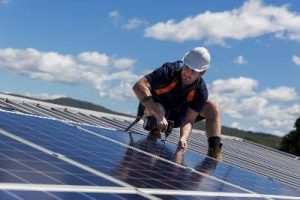Energy Efficiency
Advantages of Flexible Solar Panels
With the advances in technology, those who wish to use solar power have more choices than ever. One of the main decisions to make is whether to buy rigid or flexible solar panels. The rigid panels are what most people are used to, but the flexible panels offer some versatility that some buyers might need.
 This is especially true for those who wish to use solar power for a vehicle or a boat. In that case, the flexible panels are likely the way to go. But even for those who are looking to use panels to power their home, there are advantages to choosing flexible solar panels.
This is especially true for those who wish to use solar power for a vehicle or a boat. In that case, the flexible panels are likely the way to go. But even for those who are looking to use panels to power their home, there are advantages to choosing flexible solar panels.
Here’s an overview of the pluses of both. Consider these factors when looking into what kind of panels to buy.
Flexible panels offer many advantages over rigid panels. However, it comes down to how you plan to use the panels.
The advantages of a flexible panel include:
That last issue is likely the key one for most people. Flexible solar panels can be temporarily installed and then, once charged, can be stored and later used elsewhere. Rigid panels typically are built to be mounted and kept in place.
Rigid panels are what most people are used to when it comes to using solar panels. They have certain strengths that need to be considered when making a choice.
For example, rigid panels:
As can be seen, flexible panels can be the better choice if you plan to move your panel. This is potentially a factor even if the panels are being used on the roof of a house. Some homes cannot bear the weight of permanently installed solar panels. Flexible solar panels give homeowners another option.
The cost issue mentioned above can also play a role. Some will find that having a flexible panel is less expensive, at least for the initial purchasing price. Again, this can vary based on the brand purchased.
Generally speaking, flexible panels are clearly the best choice for those who are doing small solar projects. This can include installing them on an RV or a boat. In those cases, the flexibility and ability to remove the panels are key.
Choosing the type of panel that works best for you is entirely up to your personal budget and your plans for how you will use the panels.